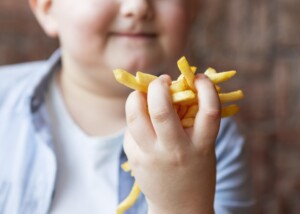
How should parents approach daughter’s college weight gain?
Has your daughter gained weight while in college and you’re wondering how to approach this topic without offending her?
So what’s a parent (usually, the mother) to do or say, or not say, upon seeing a visible weight gain in her daughter who is visiting home from college?
A mother may have absolutely no intention of hurting her daughter, but ends up doing so anyways, without realizing it.
“It is essential that parents do not overreact, react impulsively or jump to conclusions about weight fluctuations,” says Harry A. Brandt, MD, Regional Medical Director, Eating Recovery Center/Eastern Region in Baltimore, MD.
“During adolescence and early adulthood, bodies naturally go through changes in size and shape that are normal and often are perfectly healthy. It is possible that this is the case.”
What if it’s not the case, and your daughter has been struggling with unhealthy behaviors, negative body image or stress-related eating while at college?
This is easy to do, being that there are unlimited servings for most dormitory cafeteria foods, which include cake, pie, cookies, ice cream, hot dogs, pizza, fries, biscuits, not to mention breakfast foods like sausage, bacon and pastries.
And don’t forget the dormitory’s snack shop: pizza, nachos, etc.
“If the child does not seem to be concerned about her own weight gain, a parent’s comment may trigger unnecessary anxiety that could lead to decreased self-esteem, chronic dieting, obsessive exercising or even serious eating disorders,” says Dr. Brandt.
“The reality is, most individuals (especially college students) who gain weight are already aware of it and do not need a parent to point it out.
“In fact, making statements about weight often causes people to shut down and become defensive.
“Focusing on the weight change is not likely to be the best way to encourage productive further communication with the child.”
This is akin to telling a smoker, “You smoke.”
Dr. Brandt continues, “Unless the child initiates the discussion, weight changes are certainly not best discussed during the early period of reuniting with the child.
“Initially, parents could focus on enjoying the visit with their child, asking questions about school, classes, friends, and other general areas to get a holistic view of how their child is really doing at college.”
It would be unrealistic, however, for the parent to pretend that a daughter’s college weight gain never happened, especially if the parent is worried about possible complications such as insulin resistance, which is a forerunner to type 2 diabetes.
“If parents notice changes in a child’s weight and are considering raising discussion, it is crucial to first reflect on the origin of the concern,” says Dr. Brandt.
“Is it a parent’s own negative body image or anxiety about cultural weight/beauty ideals that is driving the concern over a child’s weight gain?”
Or is it concerns over your daughter’s health and eating too much unhealthy junk food at college?

“Effective parents are able to focus on health and underlying feelings or stressors as opposed to weight and size.
“For example, asking open-ended statements about the transition to college is usually more productive and more informative than asking how much weight they gained or focusing on causes of weight gain (i.e., ‘Looks like you’re not exercising enough.’).”
Here are some open-ended questions that a parent can the daughter who has gained weight at college:
“What’s been the hardest part of this semester for you?”
“Classes sound like they’ve been really stressful. What are you doing to take care of yourself?”
“What is your schedule like on a normal day?”
“Are you sleeping okay?”
“Are you feeling okay?”
“How’s the dining hall?”
“Do you and your friends use the campus fitness center at all?”
Bear in mind that a noticeable weight gain from college doesn’t always indicate that your daughter needs special counseling or is struggling, though it is important to remember that the campus counseling center is always an option if this is indeed the case.
I gained weight in college for the very simple reason that there were unlimited servings of absolutely delicious dormitory food!
The soft, fresh baked chocolate cookies were divine, and the tuna salad sandwiches were out of this world.
The marble cake was impossible to stop at just once serving, and don’t even get me started on the snack shop’s 5-star pizza.
“It is essential that parents do not judge weight gain as a negative,” says Dr. Brandt.
“Parents need to assess whether they are acting in the best interest of their child and not as a result of their own insecurities, negative body image, or cultural prejudices about weight/size.”
 Dr. Brandt pursued fellowship training in biological psychiatry and eating disorders at the National Institutes of Health where he eventually became Chief of the NIMH Eating Disorders Program.
Dr. Brandt pursued fellowship training in biological psychiatry and eating disorders at the National Institutes of Health where he eventually became Chief of the NIMH Eating Disorders Program.
 Lorra Garrick has been covering medical, fitness and cybersecurity topics for many years, having written thousands of articles for print magazines and websites, including as a ghostwriter. She’s also a former ACE-certified personal trainer.
Lorra Garrick has been covering medical, fitness and cybersecurity topics for many years, having written thousands of articles for print magazines and websites, including as a ghostwriter. She’s also a former ACE-certified personal trainer.
.

























